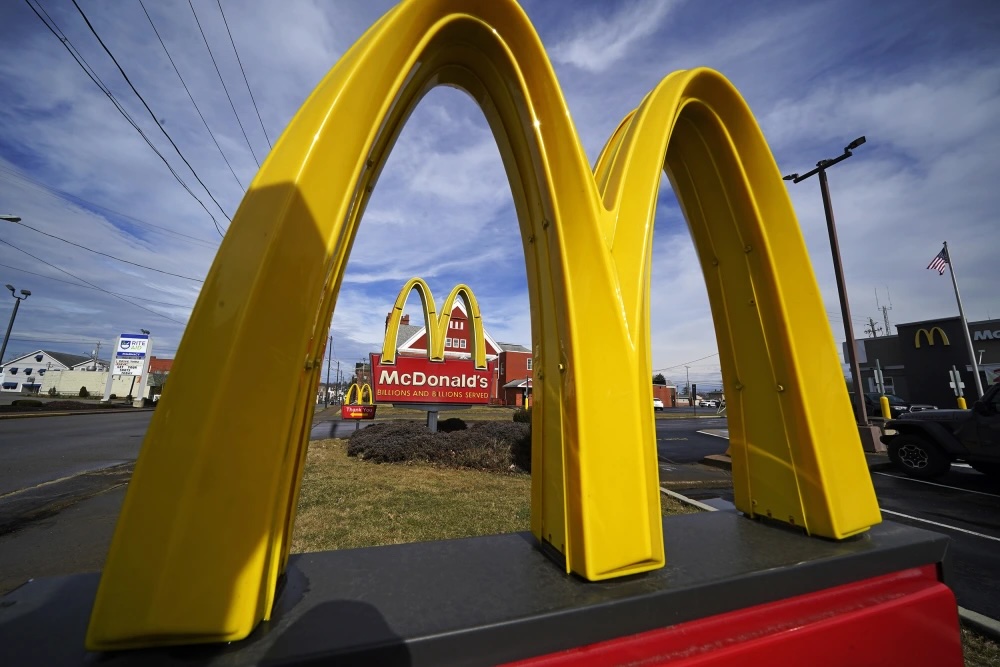When a company announces plans to hire 375,000 people in a single summer, it raises a fascinating question about the future of recruitment. Not just about how to find that many qualified candidates, but whether our current hiring systems can possibly scale to meet such ambitious goals.
McDonald's recent massive hiring initiative represents one of the most ambitious employment pushes we've seen in years. It's a bold move that signals confidence despite the company recently reporting its worst quarterly sales decline since 2020.
The scale is staggering.
Consider what this means practically. To meet this target, McDonald's would need to hire approximately 4,100 people every day over a 90-day summer period. That's 171 people per hour, around the clock.
Traditional hiring simply wasn't built for this velocity.
When Human Systems Hit Their Limits
The conventional recruitment process involves multiple touchpoints. Job postings, application reviews, preliminary screenings, interviews, background checks, onboarding paperwork. Each step creates friction, consumes time, and requires human oversight.
For most companies, this process takes weeks. For large-scale operations like McDonald's summer hiring push, the logistics become exponentially more complex.
Even with regional distribution (like the 20,000 jobs targeted for Ohio alone), the administrative burden is enormous. Each location needs to coordinate schedules, manage candidate communications, and process documentation while maintaining daily operations.
This is precisely where artificial intelligence offers transformative potential.
AI Recruitment at Scale
The question isn't whether AI can help with hiring. It already does. The real question is whether AI can fundamentally transform hiring at massive scale.
Current AI recruitment tools typically focus on specific parts of the hiring funnel. Resume scanning. Automated initial screening. Chatbots for basic candidate questions.
But what if we're thinking too small?
The true potential lies in creating end-to-end intelligent hiring systems that can handle unprecedented volume while improving candidate quality and experience.
Imagine an AI system that could:
Target with precision. Rather than blasting job listings broadly, AI can identify the exact demographic segments most likely to succeed in specific roles, then micro-target recruitment marketing to reach them efficiently.
Screen with nuance. Beyond keyword matching, advanced language models can evaluate communication skills, problem-solving abilities, and cultural fit through conversational interfaces that feel natural to candidates.
Schedule intelligently. AI can optimize interview scheduling across hundreds of locations simultaneously, accounting for staffing needs, interviewer availability, and candidate preferences.
Personalize at scale. Each candidate receives customized communication that addresses their specific questions and concerns, maintaining engagement throughout a process that might otherwise feel impersonal.
The Human Element Remains Critical
This isn't about replacing human judgment. It's about amplifying it.
The most effective AI recruitment systems will be those that free human recruiters from administrative burdens so they can focus on the high-value aspects of hiring that still require human insight.
McDonald's illustrates this balance perfectly. The company emphasizes that these positions aren't seasonal or temporary but part of a long-term strategy that includes significant educational benefits through their Archways to Opportunity program, which has provided over $125 million in tuition assistance.
Making these distinctions clear to candidates, explaining the growth potential, and assessing who will thrive in the company culture still benefits from human touch.
The Economics of AI-Powered Hiring
Beyond the operational advantages, there's a compelling economic case for AI in massive hiring initiatives.
Traditional recruitment costs average between $4,000-$20,000 per hire, depending on the position. For McDonald's 375,000-person hiring goal, even at the most conservative estimate, we're looking at potentially $1.5 billion in recruitment costs.
AI systems could dramatically reduce this through:
Faster time-to-hire. Every day a position remains unfilled represents lost productivity and revenue.
Reduced administrative overhead. Fewer hours spent on manual resume screening and scheduling.
Better matching. Improved candidate-role fit leads to lower turnover, which is particularly valuable in an industry that historically struggles with retention.
Consistent quality. Standardized assessment criteria applied uniformly across all locations.
The Real-World Constraints
Despite its potential, implementing AI recruitment at McDonald's scale faces significant challenges.
First, there's the technology infrastructure required to handle this volume of applicants. Most existing HR systems weren't built for this level of throughput.
Second, there's the question of algorithmic fairness. Any AI system must be rigorously tested to ensure it doesn't perpetuate or amplify existing biases in hiring.
Third, there's the human adoption curve. Managers across thousands of locations would need training and confidence in the new systems.
Fourth, there's data privacy. Handling sensitive applicant information at this scale requires robust security protocols.
Looking Beyond Fast Food
The implications extend far beyond McDonald's or even the fast-food industry.
Any sector that requires periodic mass hiring could benefit from these advances. Retail during holiday seasons. Agriculture during harvest. Hospitality during tourist season. Government census operations. Disaster response organizations.
The ability to rapidly scale a workforce up or down in response to demand represents a fundamental shift in how we think about labor markets.
It also raises important questions about worker stability and economic planning when hiring can happen at unprecedented speed.
The Future Is Already Here
While fully integrated AI hiring systems may still be evolving, components of this future are already operational.
Natural language processing has advanced to the point where AI can conduct initial screening interviews that candidates often can't distinguish from human interviewers.
Predictive analytics can now identify which candidates are most likely to succeed in specific roles based on subtle patterns in their applications and interactions.
Automated onboarding systems can handle paperwork, training schedules, and even basic skills development.
The technology exists. The challenge is integration, scale, and thoughtful implementation.
A New Paradigm for Massive Hiring
As companies like McDonald's push the boundaries of hiring scale, they inadvertently create the perfect testing ground for next-generation recruitment technologies.
The organizations that master AI-powered hiring at scale will gain significant competitive advantages: faster growth, better talent, lower costs, and more agile workforce management.
But the greatest benefit may be for candidates themselves. AI has the potential to make massive hiring initiatives more human, not less, by ensuring each applicant receives personalized attention impossible in traditional high-volume recruitment.
When a company needs to hire 375,000 people in a single summer, the question isn't whether AI can help. The question is whether we can afford not to use it.



